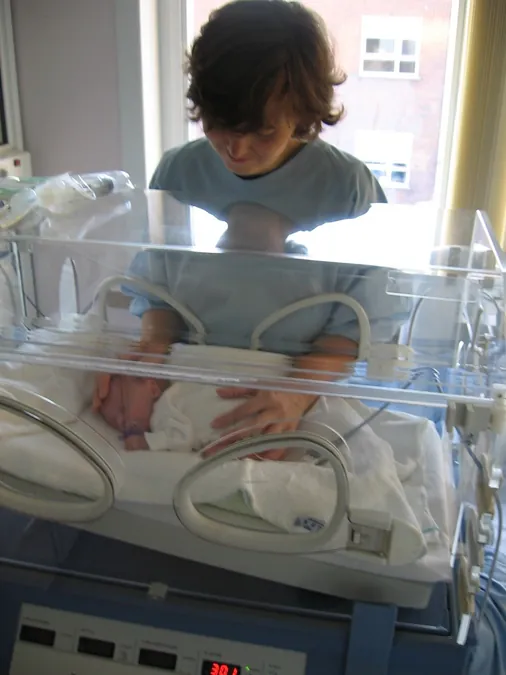
Affordable Magnesium Sulfate Could Be Key to Preventing Cerebral Palsy in Premature Babies
2024-09-24
Breaking News: Affordable Magnesium Sulfate Could Be Key to Preventing Cerebral Palsy in Premature Babies!
A groundbreaking review has confirmed that a low-cost treatment—magnesium sulfate infusion—can significantly reduce the risk of cerebral palsy in premature infants. Priced at about £5 (approximately $6.50) per dose in England, this simple intervention requires administration in a hospital setting by trained healthcare professionals, making it both accessible and life-saving.
Published in the Cochrane Database of Systematic Reviews, the editorial calls for broader and more equitable implementation of this essential treatment, as its availability remains inconsistent across the globe. The mounting evidence underscores a critical need for this practice to be adopted universally, especially for women at risk of premature labor.
The initial recognition of magnesium sulfate's protective effects dates back to a 2009 Cochrane review, which highlighted its potential in safeguarding premature babies from cerebral palsy. The recent update includes additional trials further validating these promising results. The World Health Organization has recommended this treatment since 2015 for women at risk of giving birth before 32 weeks of gestation, yet obstacles to implementation persist.
Karen Luyt, a prominent neonatologist and Professor of Neonatal Medicine at the University of Bristol, expresses concern over the fact that too many eligible mothers are still not receiving this crucial treatment. "Preterm birth is the leading cause of brain injury and cerebral palsy, which can leave lasting impacts on children and families," she stated. Luyt was inspired to champion the cause for widespread adoption of magnesium sulfate after the original review's publication, striving to offer every eligible mother the opportunity to receive this neuroprotective treatment.
Under the PReCePT initiative (Prevention of Cerebral Palsy in Preterm Labor), Luyt and a team of healthcare professionals developed a comprehensive program aimed at equipping maternity wards with the necessary resources and training to implement magnesium sulfate effectively. Since 2018, the program has expanded across five trusts in West England, with the Health Innovation Network now ensuring its availability in all NHS maternity units nationwide. Thanks to this effort, around 14,270 women received magnesium sulfate from 2018 to 2023, resulting in an estimated 385 fewer cases of cerebral palsy—an incredible triumph for maternal and infant health.
Researches initially indicated the benefits of magnesium sulfate through observational studies, but it was randomized clinical trials that cemented its efficacy. "The definitive evidence we provided in our 2009 review changed the landscape for treating preterm infants," explained Lex Doyle, a co-leader of the original review from the University of Melbourne.
Despite progress, major discrepancies remain in the treatment's only partial global adoption, particularly in lower-resource settings. Current data show that about two-thirds of eligible mothers receive magnesium sulfate, yet this number drops in countries lacking sufficient healthcare resources.
To remedy this disparity, Karen Luyt is collaborating with clinicians worldwide to create accessible materials to assist lower-resource settings in implementing magnesium sulfate alongside other supportive measures for preterm babies. In a newly released editorial in the Cochrane Library, she calls for an urgent increase in global adoption and aims to spur further research into effective delivery methods and dosages.
As the medical community strives for high-quality care, future studies are expected to address essential questions regarding the timing and administration of magnesium sulfate. With hopes pinned on standardizing international protocols, doctors aspire for a world where every woman expecting a premature birth has the opportunity to receive this game-changing treatment.
The battle against cerebral palsy is far from over, but with this affordable solution emerging, we may be on the brink of a new era in neonatal care. Stay tuned for updates as this life-saving intervention gains traction worldwide.





 Brasil (PT)
Brasil (PT)
 Canada (EN)
Canada (EN)
 Chile (ES)
Chile (ES)
 España (ES)
España (ES)
 France (FR)
France (FR)
 Hong Kong (EN)
Hong Kong (EN)
 Italia (IT)
Italia (IT)
 日本 (JA)
日本 (JA)
 Magyarország (HU)
Magyarország (HU)
 Norge (NO)
Norge (NO)
 Polska (PL)
Polska (PL)
 Schweiz (DE)
Schweiz (DE)
 Singapore (EN)
Singapore (EN)
 Sverige (SV)
Sverige (SV)
 Suomi (FI)
Suomi (FI)
 Türkiye (TR)
Türkiye (TR)